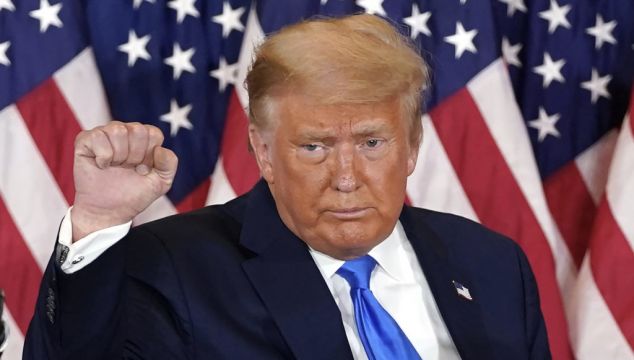Donald Trump was charged on Tuesday with conspiracy to defraud the US and other crimes related to his efforts to overturn his 2020 presidential election loss. Here's what happens next.
When will Trump appear in court?
Mr Trump is set to make his first court appearance on Thursday, when prosecutors will outline the charges against him and a judge will set his bail conditions. He might enter a plea at that time, but his arraignment could also come at a later date.
A judge will then set a schedule for pretrial motions and discovery, the months-long process when prosecutors hand over documents and other evidence to defence lawyers.
Mr Trump’s attorneys will likely file a motion to dismiss in coming months, but those are rarely granted in criminal cases. Both sides are also likely to file motions seeking to shape what evidence and legal arguments will be permitted at trial.
How does the case affect Trump's campaign?
It doesn't, from a practical standpoint. Nothing prevents criminal defendants from campaigning or taking office if they are convicted.
The political impact is less clear. Mr Trump has shown a unique ability to weather scandals that would sink most politicians, and two previous indictments did nothing to diminish his commanding lead in the race for the Republican presidential nomination.
If he wins the nomination, Mr Trump would face off against Democratic president Joe Biden in the November 2024 election. Mr Biden defeated Mr Trump in 2020, but he has only a razor-thin edge in polls of a hypothetical match-up with Mr Trump, according to a Reuters/Ipsos poll.
When will the trial happen?
That is unclear, but it would likely be many months away. A judge will set an initial trial date, but those are typically pushed back as both sides wrangle over legal issues and review evidence. Mr Trump could also appeal pretrial rulings by a judge, which would further slow down the case.







